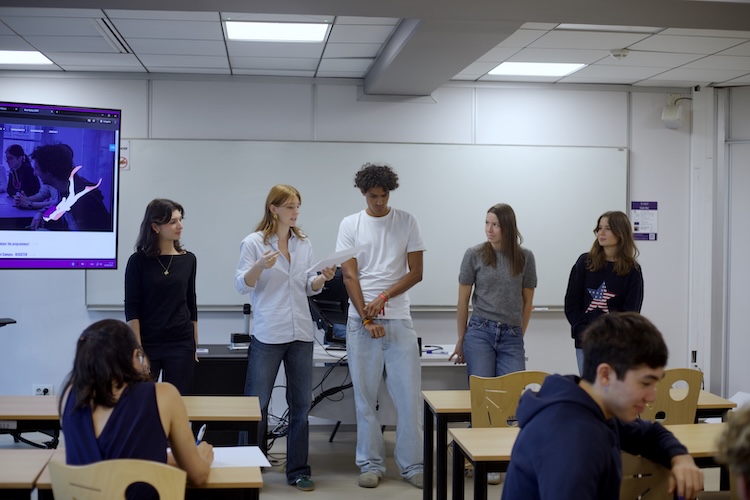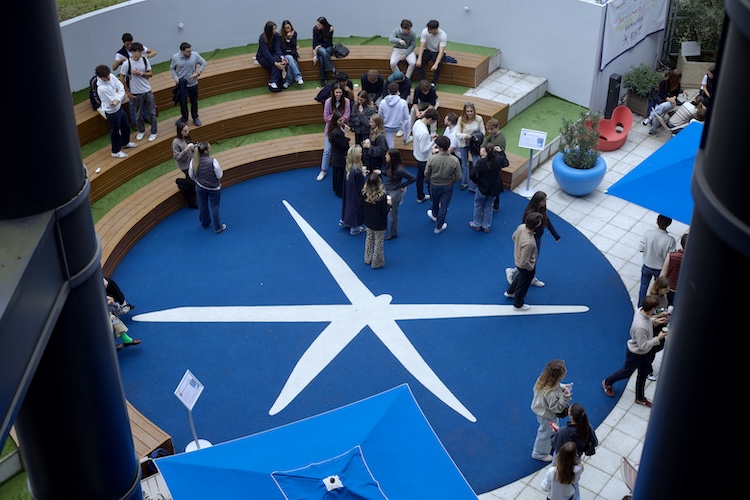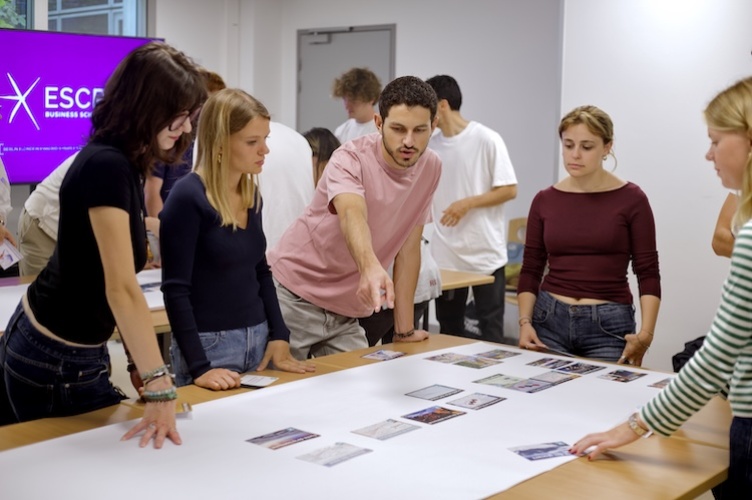Designing Tomorrow 2025
From September 1 to 3, 2025, ESCP pre-master students once again gathered in Paris for Designing Tomorrow, a three-day seminar that has become the School’s annual introduction to today’s scientific, managerial, and societal challenges.
Closing the knowledge gap
First launched in 2019, Designing Tomorrow emerged from the need to instil “beyond-the-basics” awareness of climate change in incoming students, often fresh from preparatory classes. The seminar was designed to close the knowledge gap by first equipping students with scientific literacy on climate and planetary boundaries, and then by connecting this knowledge to how climate realities are reshaping management practices and corporate decision-making. It’s a part of how the School ensures 100% of ESCP students are trained on sustainability challenges.
Connecting theory and practice
Over the years, the format has evolved, but the programme ensures students begin their studies with both a solid grounding in climate science and an understanding of its implications for business. Each year, Designing Tomorrow combines interactive workshops, exposure to the latest research and knowledge, and first-hand testimony from professionals. This year, students once again took part in the Climate Fresk interactive workshop, which teaches the fundamental science behind climate change and empowers participants to take action. They also tackled the C-Up case study, simulating corporate responses to sustainability crises.

During the key witnesses conference, students heard from expert voices, adding depth to their understanding and discussions:
- Olivier Hamant, Research Director at INRAE & ENS Lyon, and Director of Michel Serres Institute, on the tension between robustness and performance.
- Aurélien Acquier, ESCP Professor and Director of the ESCP Sustainability Institute, on cognitive biases in artificial intelligence.
- Antoine Pointcaré, director at AXA Climate, on the challenges of adapting to climate change.
Students also met with professionals from different sectors, hearing first-hand how ecological and social transitions shape real careers. In the “What if it were me?” session, transition leaders shared their own career journeys and asked students to reflect on a challenge they had encountered. It was three days of immersion, reflection and applied learning.
A new collaboration for 2025
What distinguishes the 2025 edition of Designing Tomorrow is the collaboration with the Academy of Sciences, one of France’s most respected scientific institutions. Last year, the Academy and ESCP collaborated on a series of conferences called “Major Challenges for the Future” to further encourage hard sciences learning for students. This year, students will role-play as a consulting firm for a company that wishes to address one of the challenges that will be further explored during three Academy-led conferences. The conferences will examine urgent questions on geo-engineering, water scarcity and biodiversity loss.
This evolution brings Designing Tomorrow even closer to its founding ambition: linking rigorous science knowledge, real-world responsibility and business practice. By working at the intersection of these domains, students are asked not only to understand the challenges of climate change but to imagine how tomorrow’s leaders can act.

Campuses
